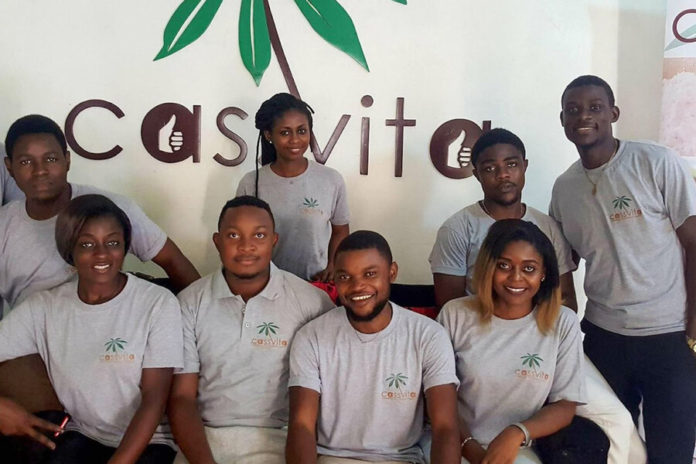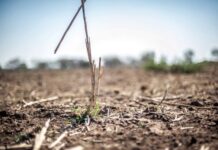The root vegetable cassava is a major food staple in dozens of countries across the world. Drought-resistant, nutritious, and tasty, it has also become a major source of income for small-scale, rural farmers in places like West Africa and Southeast Asia.
But the utility of cassava has always been limited by its short postharvest shelf life of two to three days. That puts millions of farmers who rely on the crop in a difficult position. The farmers can’t plant more than they can sell quickly in local markets, and they’re often forced to sell below market prices because buyers know the harvest will spoil rapidly. As a result, cassava farmers are among the world’s poorest people.
Now, the startup CassVita is buying cassava directly from farmers and applying a patent-pending biotechnology to extend its shelf life to 18 months. The approach has the potential to transform economies in rural, impoverished regions where millions of families rely on the crop for income.
CassVita tells farmers how much cassava the company will buy each month, and processes the cassava at a manufacturing facility in Cameroon. It currently sells the first version of its product as a powdered food to people in Cameroon and to West African immigrants in the U.S.
But CassVita founder and CEO Pelkins Ajanoh ’18 says the future of the company will revolve around its next product: a cassava-based flour that can act as a direct substitute for wheat. The wheat substitute would dramatically broaden CassVita’s target market to include the fast-growing, trillion-dollar healthy food market.
Ajanoh says CassVita is currently able to increase farmers’ incomes by about 400 percent through its purchases.
“Our objective is to leverage proprietary technology to offer a healthier and better-tasting alternative to wheat while creating prosperity for local farmers,” Ajanoh says. “We’re hoping to tap into this huge market while empowering farmers, all by minimizing spoilage and incentivizing farmers to plant more.”
Gaining confidence to help a community
While growing up in Cameroon, Ajanoh’s parents always emphasized the importance of education for him and his three siblings. But Ajanoh lost his father when he was 13, and his mother moved to the U.S. a year later to help provide for the family. During that time, Ajanoh lived with his grandmother, a cassava farmer. For many years, Ajanoh watched his grandmother harvest cassava without making any lasting financial gains. He remembers feeling powerless as his grandmother struggled to pay for things like diabetes medication.








